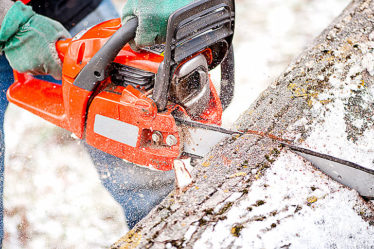
Oil furnaces are amongst the most efficient heating solutions. Although oil furnaces are designed to be cost-effective devices but can sometimes start consuming a lot of oil out of nowhere. As a result, homeowners tend to panic and think that they need furnace repair services. Let’s have some tips that will help you overcome the problem and return the furnace to its normal running condition.
Unseasonably Cold Weather
Unseasonable cold weather can cause the oil furnace to consume more oil. Typically, the warmer the temperature, the less oil the furnace will consume. However, if the temperature happens to be extremely cold, the furnace will utilize relatively more oil to fight against the cold.
This is why your oil furnace must be always well-maintained before the season begins. Just like other household items, oil furnaces require inspection and maintenance as well. As mentioned earlier, oil furnaces are designed to be cost-effective items.
Therefore, if they are neglected, do not be surprised if they consume a lot more oil daily than normal. It could be that extreme rain has caused a sudden drop in temperatures. In this case, you will need to raise the temperature, which will cause the oil furnace to use more oil.
Old And Inefficient Oil Furnace
One of the major reasons oil furnaces tend to become less effective and efficient with time is due to age. Like other household items that come with a lifespan and need replacement, the same is the case with an oil furnace. Even if the furnace is well-maintained, it will need to be replaced sooner or later.
On average, oil furnaces perform well for around 15-20 years if maintained properly. However, the maintenance part is mostly neglected as homeowners assume it is an expense. In this case, the oil furnace will surely begin consuming more oil.
Furthermore, if you own an oil furnace that is decades old, it might be that its components have turned weak. Of course, they were not meant to function for eternity. As a result, the oil consumption gradually increases. So, if you reach a point where the oil furnace needs regular repairs and the total cost of these repairs has come near or crossed the actual value of the furnace, you will need replacement.
Instead of spending and wasting your money on repairs, you should save that money and invest it in something else. Spending money on repairs on a decades-old furnace will not give you any guarantee as to how long it will work before it malfunctions again.
Therefore, replacing your current furnace with a new more energy-efficient unit is going to be a far better option.
Furnace Needs Maintenance
Heating and cooling systems will only remain consistent as long as they are maintained periodically. Because oil furnaces use fossil fuels to produce warmth, they are going to need it the most. As mentioned previously, maintenance is key to ensuring the smooth running of household appliances.
While it is your job as a homeowner to perform weekly inspections and maintenance, expert maintenance is also necessary. Several areas in your furnace are not reachable and are made possible by the experts using special tools and techniques.
Moreover, many areas inside the furnace can catch dust, dirt, and oil and easily turn into stubborn accumulation. To prevent the situation, you will need to keep an eye on the maintenance and ensure everything is working fine at all times.
Expert maintenance not only includes thoroughly cleaning the device but also looking out for signs and symptoms that might create trouble in the future. So, fixing the problem before it can cause more damage is surely a wise investment. The last thing you would want is your oil furnace to give up just when the temperatures drop below zero.
Even though the frequency of inspection and maintenance depends on the usage frequency of the furnace, you should perform weekly inspections and maintenance once a month at least or more if the furnace will be used mostly throughout the year.
Lack Of Insulation
The effectiveness and efficiency of the oil furnace will be directly impacted by the lack of insulation. If your house is not properly insulated, the warm air produced by the oil furnace will escape even before it affects the temperature inside. That said, the oil furnace will consume more oil to make up for the loss and achieve the desired temperature.
If that is the case, you will most probably observe that some areas of the house are warmer or colder than others. To fix the issue, you are going to need to insulate the house properly. Check the windows, doors, and other areas to ensure everything is working fine.
In addition to that, if you have an attic, check it for any cracks, damages, etc. You might have ignored the attic for a long time and might need your attention if some seasonable intruders have taken up accommodation.
Oil Tank Issues
In some cases, decreased oil efficiency is due to the oil tank problems instead of the furnace or any other issue. Or it could also be a combination of these problems like a leaky oil tank and improper insulation.
So, if your oil furnace is consuming too much oil, you should check your oil tank as well. Oil tank corrode from the inside so don’t let the good exterior appearance fool you. Therefore, leave the oil tank inspection to experts. If it’s too old, consider oil tank replacement services Huntington.
The Thermostat Is Too High
The thermostat set up too high will also cause the oil furnace to consume more oil than usual. Even though everyone likes to keep it warm when its freezing outside, thermostat battles are usually the case in every household.
Some people are more sensitive to temperatures than others. Therefore, if you have children and some elderly people living in the house, expect some temperature fluctuations. However, keep in mind that lowering the temperature a few degrees can also lower the oil consumption.
Moreover, lowering the temperature at night while sleeping will also keep it consistent. If the settings are switched between extremes, the furnace will have to work harder than usual to achieve the desired temperature.
How Can I Reduce Heating Oil Consumption?
There are several ways of reducing oil consumption by your furnace. To begin with, you should make sure the furnace is properly maintained. To do that, follow the manufacturer’s recommendations and schedule expert maintenance periodically.
Next, you should get an energy audit done. Many companies offer their customers free energy audits to determine and help them understand the main cause of the problem. These are thorough inspections done by experts who ensure no heat is escaping and your furnace is not burning excessive oil as a result. Plus, if your oil furnace is years old, it might not have come with an in-built thermostat. So, opt for an aftermarket one and make sure it is compatible and calibrated.
Conclusion
Troubleshooting an oil furnace consuming a lot more oil than usual isn’t that complicated. All you need to do is follow the tips mentioned above and keep an eye out for unusual signs and symptoms. At the same time, consult oil burner repair services Port Jefferson and make sure you are not missing out on something that might be hidden in sight.


